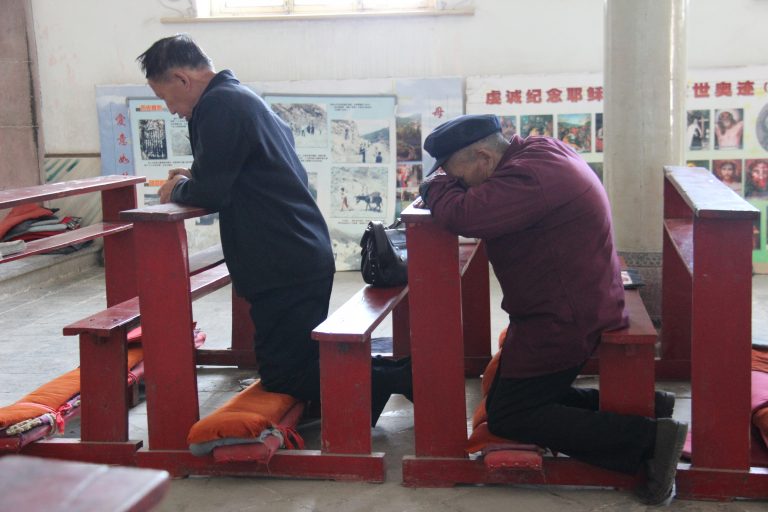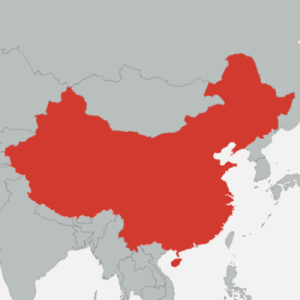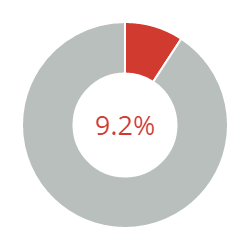China
Persecuted and Forgotten?
A report on Christians oppressed for their Faith 2015-17

KEY INDICATORS & FINDINGS
New regulations led to more churches destroyed and crosses pulled down. Threat of more restrictive legislation. Surveillance has grown. House Churches under increased pressure to conform or disband.
STATISTICS |
PROFILE
On Good Friday 2016 a woman was hospitalised while protesting against the enforced removal of her church’s cross in Wenzhou, in the coastal Province of Zhejiang. She was knocked to the ground after a 100 plus strong demolition team – including armoured police and security guards carrying riot shields –at Shangen Church. Over the course of that week (Holy Week), authorities forcibly removed more than a dozen church crosses. The ongoing destruction of church property, which began in Zhejiang and spread to neighbouring Henan and Anhui Provinces, has been the most visual sign of China’s continued persecution of Christians. On the pretext of removing structures violating planning and zoning laws, churches have been served with orders, ranging from the removal of external crosses to the demolition of entire buildings.
New May 2015 regulations heightened the problems, restricting the colour, size and location of crosses, and height of the buildings. Places of worship cannot exceed 24 metres (78 foot) in height; crosses must be inserted into the walls of the building – they cannot be on the top of buildings or steeples – their colour may not stand out, and their length cannot exceed one-tenth of the building. In April 2016 the three-story Island Head Christian Church building was demolished after authorities claimed it violated various regulations – including the position of its cross. By that time – April 2016 – more than 2,000 churches and crosses had already been demolished as part of the campaign. Authorities have introduced further measures at controlling the communities including installing video cameras to monitor their compounds. There has also been a spate of prosecutions associated with the campaign. In June 2016 a court in Zhejiang Province tried Christian Ji Qingcao for “the crime of obstructing government administration” for petitioning the Beijing government about the attempted demolition of Yazhong Church’s cross.
Government efforts to assert increased control of Christian communities gained fresh impetus in April 2016 with a programmatic speech by China’s President Xi Jinping at a two-day national conference on how the Government should deal with religion. Recognising the influence of religious practice on society, he insisted on the need to “sinicise” religious life – i.e. assimilate it into Chinese culture – and “automotise” it – i.e. free it from foreign control – as he said religion can be a means of “foreign infiltration”. Just a few days later, new laws were passed regarding foreign NGOs, effectively restricting the work of Church-based aid organisations. This followed new rules being issued in 2015 issued banning Party members from being affiliated to any religious group.
New attempts to bring Christianity and other religious groups in line with Communist party principles have resulted in increased persecution and various forms of increased pressure on the religious communities in China. “Officially” five religious communities are recognised: Buddhist, Taoist, Muslim, Catholic, and Protestant. Followers of these faiths are allowed to practise under the auspices of one of the state sanctioned ‘patriotic associations’. For Catholics this is the Chinese Catholic Patriotic Association (CPA) and for Protestants the Three-Self Patriotic Movement. These seek to control Christianity in line with Communist Party principles. But many worship outside of these official structures in what are often referred to as the ‘underground’ churches. While the regime does not technically outlaw ‘underground’ churches, they are not permitted to hold public religious services or carry out other activities. House Churches in particular have come under pressure to conform or disband. For example in October 2016 leaked documents from Lu’an in Anhui Province, revealed plans to catalogue one of the district’s churches in an effort to get them to attempt to join the Three-Self Patriotic Movement or force them to disband if they will not. However, local authorities have targeted even churches and leaders from Patriotic Associations not to mention human rights lawyers who take up Christians’ cases.
China’s revisions to the Regulations on Religious Affairs, which are scheduled to take effect at some point in 2017 prohibit “organising religious activities in unapproved religious sites” and “preaching, organising religious activities, and establishing religious institutions or religious sites at schools.” Universities and other places of education in particular have also seen a clampdown on religion, with Christmas parties, Christmas trees and greeting cards banned in various institutions. Renmin University prohibited all religious activities on campus – erecting a sign to enforce the ban. In some places this has been more pro-active and authorities in Lishui city in China’s coastal Zhejiang Province have been systematically eradicating religious activity in Lishui Vocational and Technical College since the beginning of 2016. College officials were told to instil atheism into students. In September 2016, more than 100 teachers and 400 new students from the college attended a lecture on “Building a Correct Outlook on Life: Consciously Resisting the Corrosiveness of Religious Ideology and Every Type of Theism.”
Following intensive negotiations between the Vatican and the Chinese government, in November and December 2016 four bishops were consecrated with both papal and state recognition. Consequently, the dioceses of Chagzhi (Shanxi Province), Ankang (Shaanxi Province), Chengdu und Xichang (both in Sichuan Province) gained either an “ordinary” diocesan bishop or a “coadjutor” (bishop with automatic right of succession). However, there were protests over the presence of Lei Shiyin, who was appointed bishop of Leshan without Vatican approval, at both consecrations.
According to the Pew Research Centre, there were up to 70 million Christians in 2010, including more than 59 million Protestants and more than 9 million Catholics (in the case of the Catholic Church, many ‘official’ communities are loyal to Rome, with up to 90 percent of state-approved bishops and priests being recognised by the Vatican). With evidence that Christianity is particularly attractive to the young reports indicate the growth of Christianity in China. According to some estimates, Christianity has more followers than the Communist Party. In themselves, such statistics explain the authorities’ suspicion of a religion which in their thinking always has the potential to become the rallying point for dissent if not outright rebellion.


